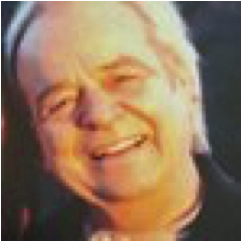
Phil Smith
The Rev. Philip A. Smith, parish minister, psychotherapist, and dedicated activist for social justice and civil rights, died on March 3, 2015, at the age of 84.
As a long-term active member of the Congress of Racial Equality (CORE), Mr. Smith was a leader in many desegregation marches in the 1960s. Following the murder of James Reeb in 1965, he traveled from California to participate in the Selma-Montgomery march.
Philip Ashley Smith was born in Bangor (Maine) on September 15, 1930, to Philip and Blanche Smith. He earned a B.A. from Tufts College (now Tufts University) in 1954 and an M.Div. from Crane Theological School in 1957. Mr. Smith was ordained by the Second Parish (Unitarian) of Marlboro (Mass.) in 1957 and continued his pastorate there until 1960, while serving also from 1958 to 1960 as associate chaplain to a prison in nearby Norfolk. He then moved on to parish ministries at the First Unitarian Church in Louisville, Kentucky (1960-63) and the Universalist Unitarian Church of Riverside, California (1963-80).
During these ministries, the Rev. Mr. Smith took on active roles in a variety of local social justice organizations. He served as an adult adviser to CORE in Louisville, was a member of the Louisville Executive Board of the National Association for the Advancement of Colored People (NAACP), a member of the Board of Directors of the Kentucky Civil Liberties Union, and a co-founder and co-chairman of the Kentucky Committee to Abolish Capital Punishment.
While serving the Riverside Church, Mr. Smith undertook training as a psychotherapist, receiving a California license in Marriage, Family, and Child Counseling in 1970. For the next ten years he practiced psychotherapy alongside his ministry to the Riverside Congregation, and then took early retirement from parish ministry in 1980 to practice psychotherapy full time.
Phil is recalled as a maverick and one who valued individual creativity. He encouraged others to hold on to their uniqueness, and enrich the world with it. He gave voice and support to those who suffered injustice and mistreatment. He is remembered by family and friends for his love of laughter and his appreciation of life; his final words were “thank you.”
Philip Smith is survived by his wife Sharon Rose (McMaken) Smith; a son, Gabe, and a daughter, Bryony; grandchildren, Ryan, Andy and Ashle; two great-grandchildren; and brothers, Jim, Tom, and Paul.
Memorial donations are encouraged to the American Civil Liberties Union.
